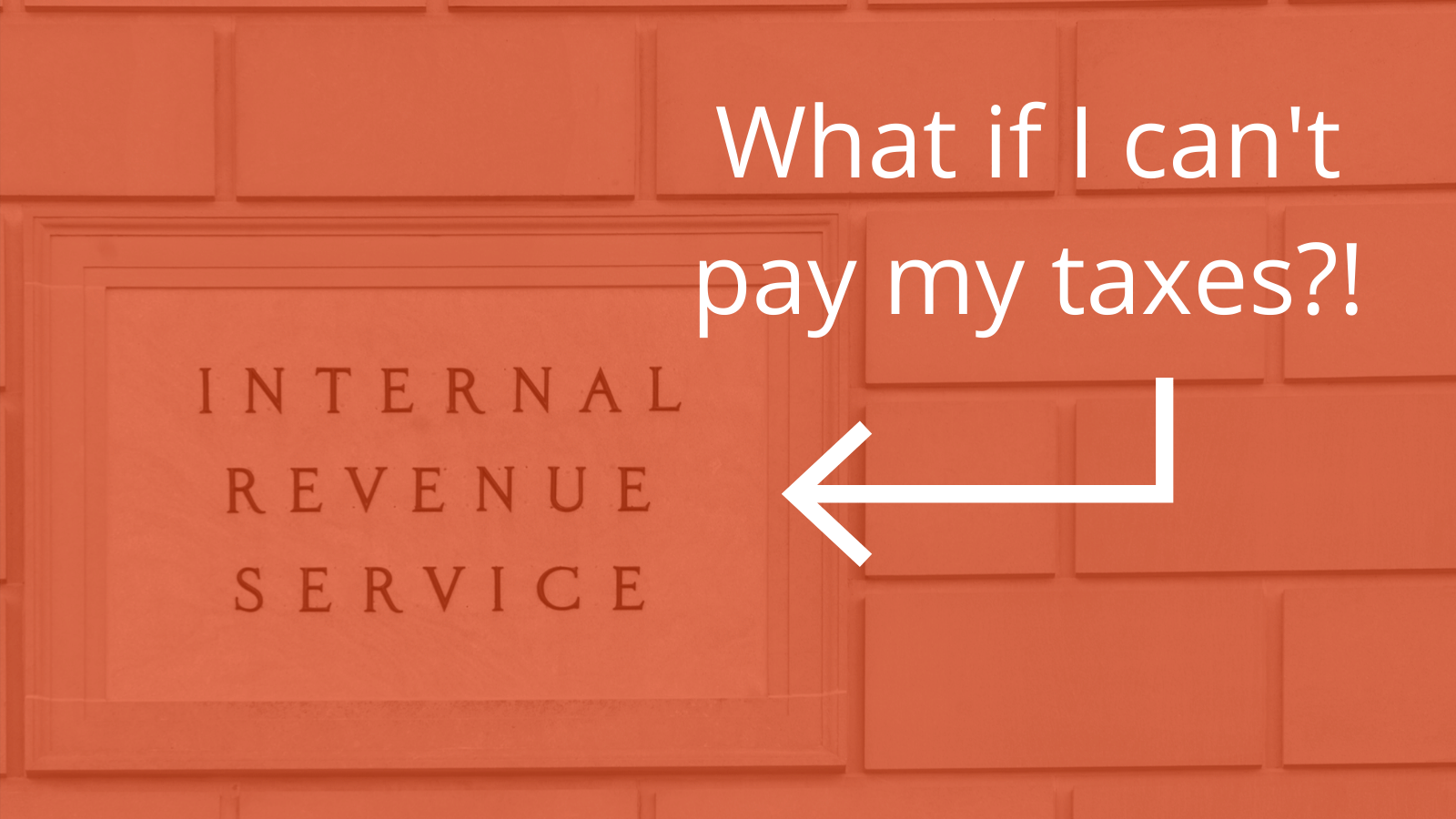
6 second take: Most people get a refund when they file their tax return. But if you’re unable to pay the taxes you owe, there are some options.
No one likes owing money to the government, but it may be unavoidable come tax time, but what happens if you can’t afford to pay your taxes?
Whether you’re a self-employed individual who underestimated the amount owed or work in a position wherein your taxes are not deducted, come 2021’s May 17th tax deadline, it’s time to pony up some green to the Internal Revenue Service (IRS). It’s one of only two things that’s certain in life, and we need not dwell on the other.
Unfortunately, not everyone can afford to write a check for the amount owed. Here’s how you can manage the money owed to Uncle Sam:
Avoid Penalties by Filing Your Return
Most people don’t realize that there are multiple penalties if you owe taxes and don’t file your tax return on time.
You can be charged a late-filing penalty that is typically 5 percent of your unpaid taxes each month and can accrue up to a maximum of 25 percent, according to the IRS. The minimum penalty for filing in 2021 is $435, or 100 percent of your unpaid taxes — whichever amount is less.
So even if you owe taxes that you can’t pay, file your return on time (or at the very least, as soon after the deadline as possible), so that you’re not hit with a failure-to-file penalty.
You can also be penalized for paying late, even if you file your return on time.
Generally, the penalty is 0.5 percent of the taxpayer’s unpaid taxes each month, but it can grow to as much as 25 percent of those taxes, depending how long the tax remains unpaid. However, if you enter into an installment agreement, this late payment penalty will drop to only .25 percent each month.
You might be able to avoid both of these penalties if you can show reasonable cause for not filing or paying on time. However, this won’t work if you say something unreasonable like, “My son had a field trip that I had to pay for.” If you owe taxes and can’t pay, you must have a very good reason.
Filing an Extension May Help Reduce Penalties
If you paid 90 percent of the taxes you owed by the tax due date and you filed an extension for your tax return, you may not be charged a failure-to-pay penalty as long as you pay the remaining balance by the extended due date, according to the IRS. You will, however, have to pay interest on the taxes due after the tax due date — however, this doesn’t apply in all situations.
What If I Can’t Pay My Taxes?
If you owe taxes and can’t pay your bill in full, there are a couple of options that may be available to you. Two common ways of settling owed taxes are a payment plan or an offer in compromise.
Short- and Long-Term Payment Plans
You may be able to set up a payment plan with the IRS, as long as you meet the requirements. If you’ve filed all the necessary tax returns, you may qualify for a short-term payment plan (120 days or less) if you owe less than $100,000 in tax, penalties, and interest, or a long-term payment plan (more than 120 days) if you owe $50,000 or less in tax, penalties, and interest.
Short-term payment plans have no setup fee, but you will owe accrued penalties and interest until the balance is paid in full.
Long-term payment plans have setup fees ranging from $31 to $225, depending on how you apply for your repayment schedule, and you’ll have to pay accrued penalties and interest until you pay the balance in full.
You can learn all about these payment programs on the IRS website.
The Offer in Compromise Program
Another option for those who owe taxes but can’t pay is the offer in compromise program through the IRS. It allows you to settle the tax debt you owe for less than the full amount due, but only if you can’t pay your taxes due to financial hardship.
The IRS considers your ability to pay, income, expenses, and asset equity when making the determination.
The IRS generally approves these offers when the proposed amount is the most it can expect to collect within a reasonable period of time. The best starting point to an offer in compromise application is to use this free IRS tool to see whether or not you qualify for the program.
There are two methods of offering in compromise: lump-sum cash and periodic payments.
Lump-Sum Cash
Lump-sum cash involves a first payment that’s 20 percent of the total you intend to pay off. If this offer is accepted via written confirmation from the IRS, the remaining balance is paid off in a maximum of an additional five payments.
Periodic Payments
Periodic payments work similarly to short- and long-term payment plans, but allow the payee to pay back less than is owed. Rather, in submitting an application, the subject suggests an amount they feel they are able to pay back, along with an initial payment.
The payee continues to pay off their remaining balance while the IRS reviews the application and, if accepted, continues paying until the application amount is paid in full, regardless of how many payments required. These amounts are generally nonrefundable.
You must be eligible in order to submit an offer in compromise. To be eligible, you can’t be in an open bankruptcy proceeding and you must be current with all filing and payment requirements. You must also have received a bill for at least one tax debt that you have included or intend to include in your offer.
When you submit your offer, you’ll have to pay a nonrefundable $205 application fee and an initial payment toward your offer, plus you’ll have to start making payments while the IRS weighs whether to accept your application.
However, if you qualify for a Low-Income Certification, you won’t need to pay the fee, initial payment, or proceeding payments while you wait for the IRS to approve or decline your application.
To submit an application, complete and submit all the forms in the IRS’ Offer in Compromise booklet. To find out if you qualify for Low-Income Certification, visit page 24 of that booklet.
Keep in mind that this option is available only to those who cannot afford to pay the taxes owed; if you apply and are able to follow an IRS payment plan, it is likely your application will be denied.
Do Tax Relief Companies Really Work?
I’m sure you’ve seen or heard advertisements claiming that your tax debt can be wiped out.
Those advertisers don’t have a magic bullet — they simply take advantage of the programs the IRS offers.
Unfortunately, many of these companies are scams. Most taxpayers don’t qualify for the programs these fraudsters promote, their companies don’t settle the tax debt, and in many cases don’t even send the necessary paperwork to the IRS requesting participation in the tax relief programs they promote, according to the Federal Trade Commission.
If you can’t figure out how to do it yourself, make sure you hire a legitimate company that can help. Check the Better Business Bureau to find one, and don’t pay in full up front. If you do have to make any sort of up-front payment, don’t do so without fully understanding what the company will do for you.
The above should not be relied on as tax advice for your specific situation. And as always, you should consult a tax professional.

About the Author
Vanda Jamison, CEO of The Jamison Legacy Group, Licensed Independent Financial Broker and Activist. Passionate about educating and empowering the Black and Brown Community on the most powerful ways to prepare and save for their future and create Legacy. My financial forums inspires folks to become financially courageous and proactive. We teach people how to take destiny into their own hands and coach them through each step, until they get to their desired goals and generate wealth that surpasses expectations.

